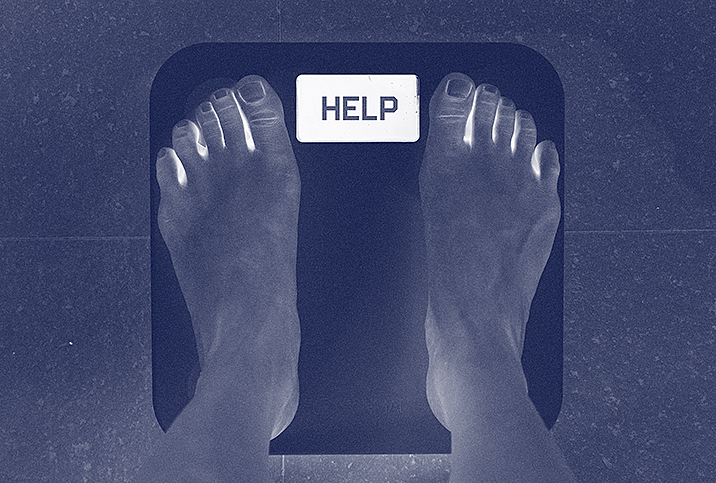Binge Eating Disorder: Symptoms, Risk Factors and Complications

Binge eating disorder is a serious condition that occurs when individuals compulsively eat abnormally large amounts of food and feel they are not in control of their eating habits.
It's normal for people to eat more than they should every now and then—maybe on a special occasion like Thanksgiving or during a late-night snack session—but overeating is a regular and consistent occurrence for people with binge eating disorder. Perhaps the most important distinction is that bingeing is part of a compulsion that makes individuals feel like they are unable to resist their urge to overeat.
Treatment for binge eating disorder typically includes some combination of psychotherapy, medication and behavioral weight-loss programs.
Symptoms of binge eating disorder
The Mayo Clinic reports that while people with binge eating disorder are most often overweight or obese, it is possible for a person with the disorder to maintain a normal weight. The tendency toward people with binge eating disorder being overweight is because, unlike with bulimia, they do not purge or regularly compensate for increased calorie intake through drastic methods such as taking laxatives or exercising excessively.
The signs and symptoms of binge eating disorder vary between sufferers, but the most common ones include:
-
Eating excessive amounts of food in a short period of time
-
Feeling a lack of control over eating habits
-
Eating even if you're full and not hungry
-
Eating quickly and to the point of discomfort
-
Eating in secret
-
Making frequent attempts at dieting without any results
-
Feeling shame and embarrassment after eating
-
Feeling depressed and anxious due to your eating habits
The severity of binge eating disorder depends on the frequency of bingeing episodes.
Risk factors & complications
Researchers have not identified the specific causes of binge eating disorder, though a combination of genetics, biological factors, and other behavioral and psychological issues are thought to contribute to an increased risk of the disorder.
According to the National Eating Disorders Association, binge eating disorder is most common among women, though men can have it, too. And while the disorder can develop at any age, it usually begins in people's late teens or early 20s.
Risk factors for binge eating disorder include having a family history of eating disorders, a history of dieting, and psychological issues such as stress, poor body image and more.
When left untreated, binge eating disorder can lead to a variety of complications, including poor quality of life and obesity, which leads to further issues. Some complications associated with obesity are joint problems, type 2 diabetes, sleep apnea and heart problems.
Binge eating disorder can also leave a person feeling isolated, depressed and anxious. Bipolar disorder and substance abuse disorders are also sometimes linked to binge eating disorder.
If you or a loved one is struggling with binge eating disorder, don't hesitate to seek help from a medical or mental health professional. You can contact the helpline of the National Eating Disorders Association to get support, resources and treatment options for you or a loved one by calling or sending a text to 800-931-2237.

















